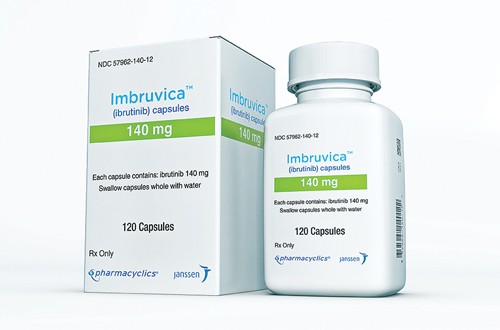
Johnson & Johnson (J&J) has racked up a fourth approval for its blood cancer treatment Imbruvica in the US, with the FDA backing its use for Waldenström’s macroglobulinaemia (WM).
Imbruvica (ibrutinib) is the first drug approved by the FDA to treat WM, a form of B-cell lymphoma which is similar to the more common non-Hodgkin’s lymphoma (NHL) but is estimated to affect fewer than 1,500 people in the US each year.
Patients with WM produce abnormal B cells that can cause bleeding, vision problems and disrupt the nervous system, and the disease gradually gets worse over time. They are typically diagnosed in later life, usually after age 60.
In a 63-patient trial Imbruvica achieved an overall response rate of 62%, with the duration of response ranging from around three months to more than 18 months.
Imbruvica is one of J&J’s top growth products in oncology and pulled in $200m in 2014, its first full year on the market, and has been tipped to become a blockbuster with sales topping $1bn as early as this year if J&J can continue to add new indications to its label.
The drug is a Bruton’s tyrosine kinase (BTK) inhibitor – licensed by J&J from Pharmacyclics in 2011 in a deal valued at up to $975m – and is also approved to treat two forms of chronic lymphocytic leukaemia (CLL) as well as mantle cell lymphoma (MCL).
“Since the first description of WM more than 70 years ago, there has been no approved treatment for this cancer,” commented Steven Treon, a cancer specialist at Dana-Farber Cancer Institute and Harvard Medical School, who led the Imbruvica trial.
“Rather, doctors relied on therapies borrowed from similar cancers to treat these patients,” he added.
Imbruvica is facing competition from AbbVie and Roche’s ABT-199/GDC-0199, which as a BCL-2 inhibitor has a different mode of action but is also being developed for B-cell disorders such as CLL and could be filed for approval later this year.
It has been suggested that ABT-199 may achieve a higher rate of complete responses than J&J’s drug – although that is speculative in the absence of head-to-head trials – and is also less likely to cause a rare side effect called tumour lysis syndrome (TLS). Imbruvica’s label carries a warning about TLS.




